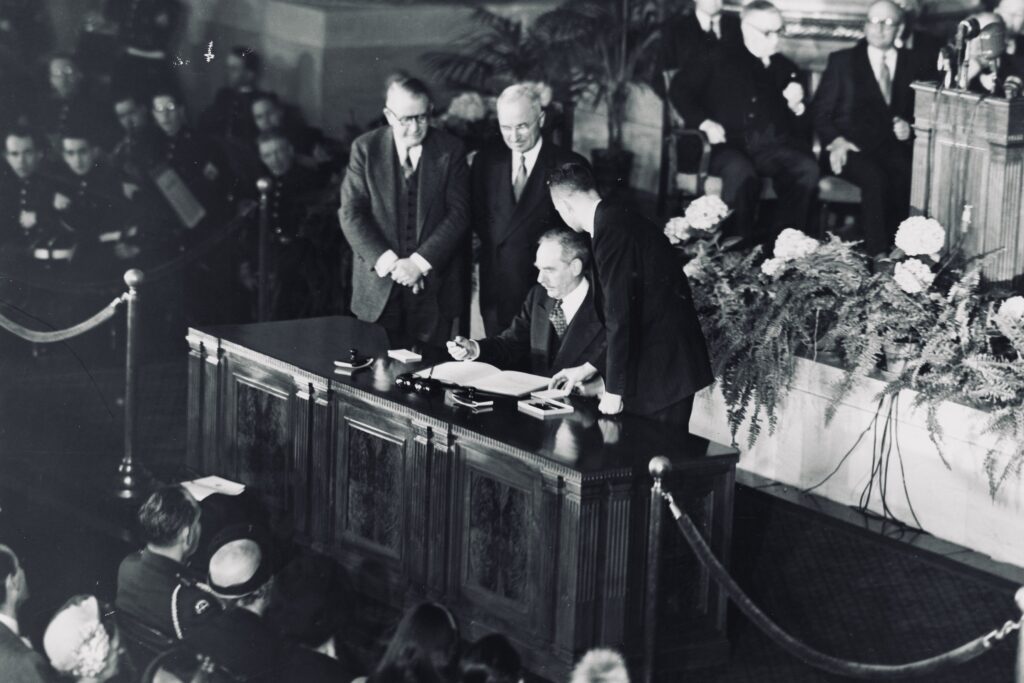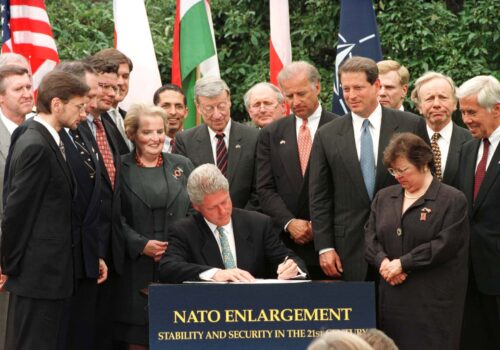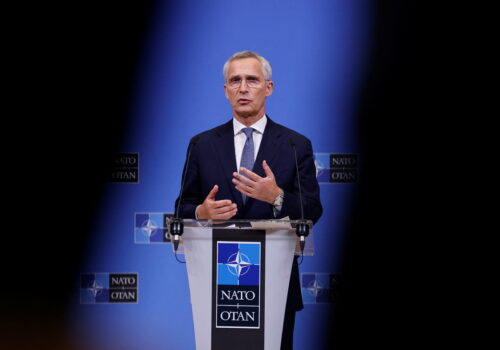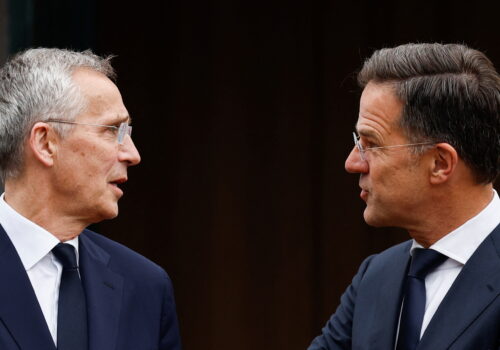History was made in the unimaginatively named Departmental Auditorium. That is the Washington, DC, room where, seventy-five years ago today, the North Atlantic Treaty was signed by representatives from twelve nations. The Alliance the treaty created, NATO, was born following two destructive world wars and a reasonable fear that Soviet aggression might soon set off a third. The Alliance sought to establish peace at a moment when such a notion seemed almost rebellious.
Seventy-five years is a long time. Long enough, at least, to take some things for granted. It’s reasonable to claim that this applies to the Alliance and the peace that it has helped ensure for its members for seventy-five years. NATO is nowadays seen as such a staple of the security architecture in the North Atlantic that even its members sometimes forget to reflect on just how powerful, diverse, and foundational to the modern world it has become.
What was hard to imagine in 1949 seems almost impossible to live without now.
In some ways, it’s understandable that NATO might be taken for granted—it has just recently welcomed its thirty-second member in Sweden, and NATO allies account for nearly half of the world’s economic power and nearly half of the world’s military might. Even so, with the security situation shifting rapidly across the world, there is uncertainty as to the Alliance’s ability to meet new challenges head on and adapt to the times.
In this sense, the seventy-fifth anniversary is an opportunity to step back from the debates of the day and take stock of the progress achieved over three-quarters of a century. Speaking on the day of the signing, President Harry S. Truman painted a picture of a world that, at the time, seemed almost utopian, where lasting peace and prosperity would be underpinned by a North Atlantic community united by the values of democracy, individual liberty, and the rule of law.
On signing the North Atlantic Treaty, Truman said that the new Alliance would “create a shield against aggression and the fear of aggression—a bulwark which will permit us to get on with the real business of government and society, the business of achieving a fuller and happier life for all our citizens.”
Truman’s vision for NATO was unabashedly idealistic. Ideals, however, are only ideals if on some level they seem beyond what is possible. However small, there must always be some sense that reality will fall short. Would allies really work together? Would they really come to each other’s aid if attacked? Just before the signing ceremony, the Marine band in the auditorium played two popular songs from George Gershwin’s Porgy and Bess—“I’ve Got Plenty of Nothin’” and “It Ain’t Necessarily So”—that seemed to be a wry expression of this concern.
What was hard to imagine in 1949 seems almost impossible to live without now. The North Atlantic Treaty is, as Truman said, a “simple” document. This is true, yet the Alliance it created is complex and unlike anything else that preceded it or followed it. The idea of NATO would be mimicked by other organizations, but it was the dedication to the ideals enshrined in the treaty that kept NATO together as its imitators fell short.
NATO today is a different organization than it was in 1949, of course. It is bigger, more powerful, and more diverse than its creators must have imagined. It now includes nations that for decades sat far behind the Iron Curtain. But in several essential ways, the Alliance carries forward its original mission. In an ever-changing world, NATO keeps us safe, keeps our way of life safe, and remains the foundation of our economic prosperity.
Earlier this year, US Defense Secretary Lloyd Austin said that “NATO is the most powerful and successful alliance in history. And we’re going to keep it that way.” The way to keep it that way is to reflect on its remarkable success—and to realize that its success is not static. It requires recommitting to the shared transatlantic vision today, tomorrow, and into the years ahead.
Christopher Skaluba is the director of the Atlantic Council’s Transatlantic Security Initiative, in the Scowcroft Center for Strategy and Security. He previously served as director of European and NATO policy at the US Department of Defense.
Philippe Dickinson is the deputy director of the Transatlantic Security Initiative and a former career diplomat for the United Kingdom.
Dominykas Kaminskas is a visiting fellow at the Transatlantic Security Initiative.
Further reading
Wed, Mar 6, 2024
NATO enlargement at twenty-five: How we got there and what it achieved
New Atlanticist By
Two and a half decades after Poland, Hungary, and the Czech Republic joined NATO, their membership continues to protect them from Russian aggression.
Thu, Feb 8, 2024
Four NATO defense priorities for the upcoming Washington summit
New Atlanticist By Franklin D. Kramer, Anca Agachi
The upcoming NATO Summit offers an opportunity for the Alliance to prioritize new and transformational capabilities.
Thu, Mar 7, 2024
What kind of leader is required for the future of the NATO Alliance?
New Atlanticist By Timo S. Koster
Dutch Prime Minister Mark Rutte is the clear front-runner to be the next secretary general, but his candidacy is not quite assured.



